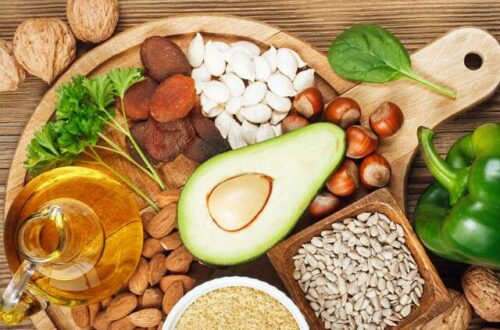wellhealthorganic.com:12-effective-weight-lose-tips-without-dieting: Losing weight can be a challenging and frustrating process, especially when it involves strict and restrictive diets. However, there are alternative approaches to weight loss that focus on long-term success and overall well-being. In this article, we will share 12 expert tips for effective weight loss without resorting to restrictive diets. These tips are based on scientific research and the advice of health and nutrition professionals. By following these tips, you can achieve sustainable weight loss and improve your overall health.
Also Read: wellhealthorganic.com:health-benefits-of-lemon-oil
12 expert tips for effective weight loss without resorting to restrictive diets
Focus on Whole Foods
One of the most important tips for effective weight loss is to prioritize whole foods in your diet. Whole foods are minimally processed and retain their natural nutrients. They are typically lower in calories and higher in fiber, which can help you feel fuller for longer and prevent overeating. Incorporate plenty of fruits, vegetables, whole grains, lean proteins, and healthy fats into your meals. Avoid highly processed foods that are often high in added sugars, unhealthy fats, and empty calories.
Practice Mindful Eating
Mindful eating is a powerful tool for weight loss that involves paying attention to your food choices, eating slowly, and savoring each bite. By eating mindfully, you can better recognize hunger and fullness cues, which can help you avoid overeating. Take the time to chew your food thoroughly, enjoy the flavors, and listen to your body’s signals of satiety. Avoid distractions such as television or smartphones during mealtime, as they can lead to mindless eating.
Also Read: wellhealthorganic.com:health-benefits-of-lemon-oil
Portion Control
Portion control plays a crucial role in weight management. Even if you’re eating healthy foods, consuming large portions can still lead to weight gain. Use smaller plates and bowls to help control portion sizes. Pay attention to recommended serving sizes and be mindful of portion distortions at restaurants or when eating packaged foods. Additionally, listen to your body’s hunger and fullness cues and stop eating when you’re satisfied, rather than stuffed.
Stay Hydrated
Drinking enough water is essential for overall health and can also support weight loss efforts. Water helps to increase satiety and reduce calorie intake. Before reaching for a snack, try drinking a glass of water to see if you’re truly hungry or just thirsty. Aim to drink at least eight glasses of water per day, or more if you’re physically active or in a hot climate. You can also include other hydrating beverages like herbal tea or infused water to add variety.
Engage in Regular Physical Activity
Regular exercise is crucial for weight loss and overall health. Engage in a combination of cardiovascular exercise, such as brisk walking, jogging, or cycling, and strength training exercises to build lean muscle mass. Aim for at least 150 minutes of moderate-intensity aerobic activity per week, along with two or more days of strength training. Find activities you enjoy and make them a part of your daily routine. Remember that any movement is better than none, so even short bouts of exercise throughout the day can be beneficial.
Also Read: wellhealthorganic.com:health-benefits-of-lemon-oil
Prioritize Sleep
Adequate sleep is often overlooked but plays a significant role in weight management. Lack of sleep can disrupt hunger and appetite-regulating hormones, leading to increased cravings and overeating. Aim for 7-9 hours of quality sleep per night. Establish a regular sleep schedule and create a relaxing bedtime routine to promote better sleep. Avoid electronic devices before bed, as the blue light emitted can interfere with your sleep-wake cycle.
Manage Stress Levels
Stress can be a significant factor contributing to weight gain and difficulty in losing weight. Chronic stress can lead to emotional eating and increased intake of unhealthy foods. Find healthy ways to manage stress, such as practicing mindfulness, deep breathing exercises, yoga, or engaging in hobbies you enjoy. Prioritize self-care activities and make time for relaxation and stress reduction in your daily routine.
Include Protein in Your Diet
Protein is an essential nutrient for weight loss as it helps to increase satiety, boost metabolism, and preserve muscle mass. Include lean sources of protein such as chicken, fish, beans, lentils, tofu, or Greek yogurt in your meals and snacks. Protein also requires more energy for digestion compared to fats and carbohydrates, which can contribute to a higher calorie burn.
Also Read: wellhealthorganic.com:health-benefits-of-lemon-oil
Choose Healthy Fats
Contrary to popular belief, including healthy fats in your diet can support weight loss. Healthy fats, such as those found in avocados, nuts, seeds, and olive oil, help to increase satiety and provide essential nutrients. They can also improve the absorption of fat-soluble vitamins. However, remember that fats are high in calories, so be mindful of portion sizes when incorporating them into your meals.
Don’t Skip Meals
Skipping meals, especially breakfast, can lead to overeating later in the day and hinder weight loss efforts. Eat regular meals and snacks throughout the day to keep your metabolism steady and prevent excessive hunger. Focus on nutrient-dense foods that provide sustained energy and satiety. If you’re not hungry in the morning, start with a smaller meal or snack and gradually increase your intake over time.
Be Consistent and Patient
Weight loss is a gradual process, and it’s important to be consistent and patient. Don’t get discouraged by temporary setbacks or plateaus. Focus on making sustainable lifestyle changes rather than resorting to quick-fix solutions. Remember that weight loss is not just about the number on the scale but also about improving your overall health and well-being.
Also Read: wellhealthorganic.com:health-benefits-of-lemon-oil
Seek Professional Guidance
If you’re struggling with weight loss or have specific dietary needs, consider seeking professional guidance. A registered dietitian or nutritionist can provide personalized advice and help you create a tailored eating plan. They can also address any underlying medical conditions that may be affecting your weight loss efforts.
Conclusion
Effective weight loss doesn’t have to involve restrictive diets. By incorporating these 12 expert tips into your lifestyle, you can achieve sustainable weight loss and improve your overall health. Remember to focus on whole foods, practice mindful eating, control your portions, stay hydrated, engage in regular physical activity, prioritize sleep, manage stress levels, include protein and healthy fats in your diet, avoid skipping meals, be patient and consistent, and seek professional guidance when needed. Embrace a balanced and holistic approach to weight loss, and enjoy the journey towards a healthier you.




Average Rating